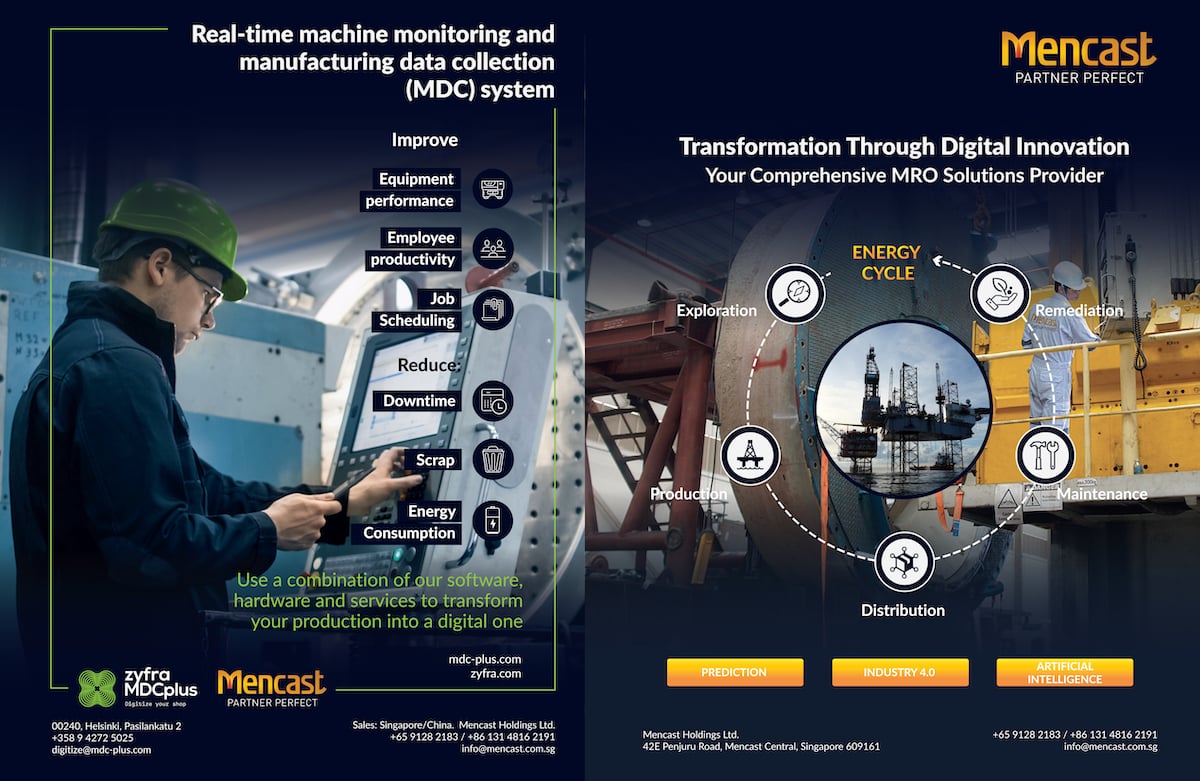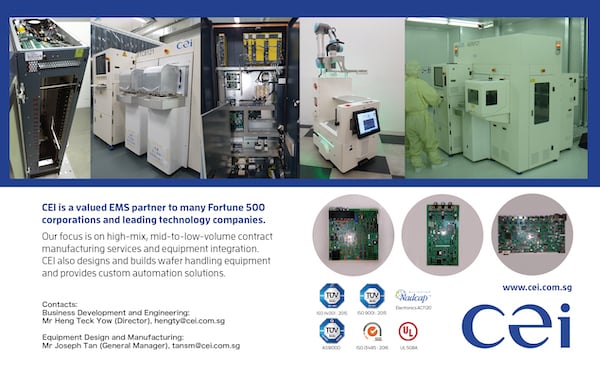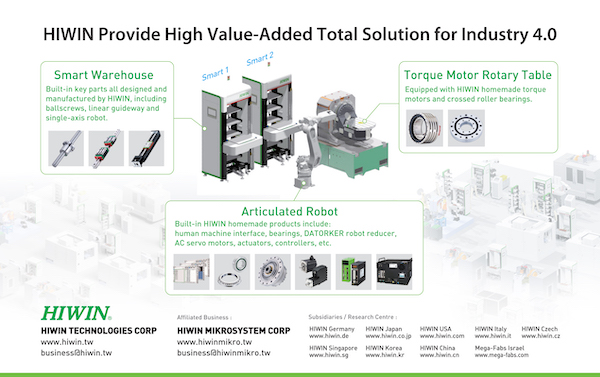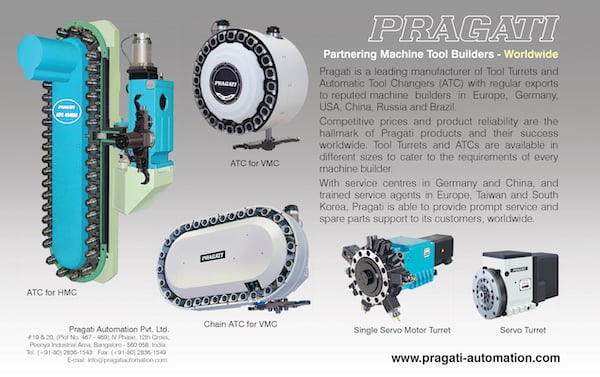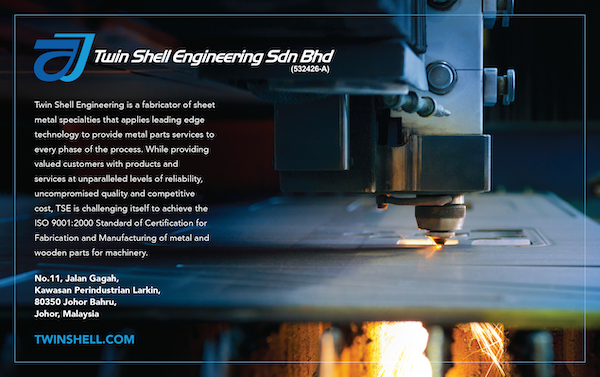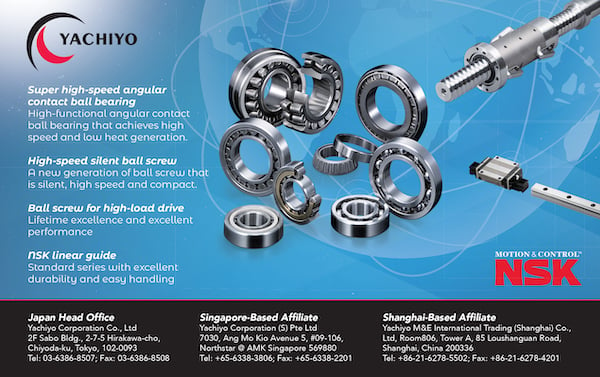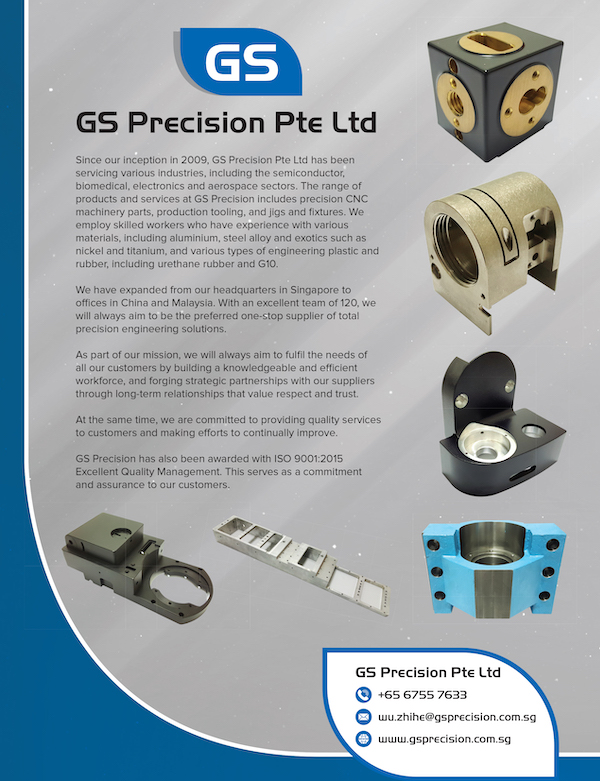There’s a quiet revolution going on in precision engineering, but few outside its immediate confines will have noticed any evidence of it. For an industry requiring constant refinement and renewal to stay ahead in a tough and rapidly changing market, it’s a painful but necessary transition.
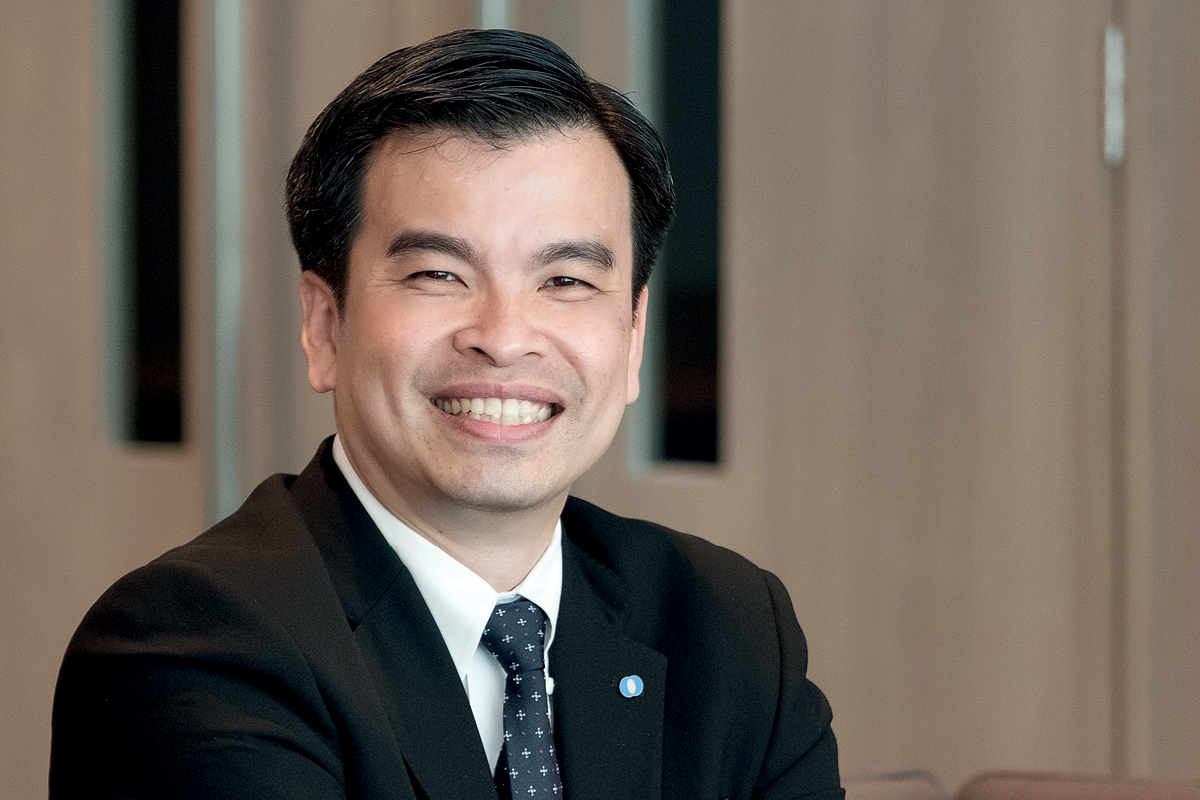
Some years ago, the CEO and President of engineering company Makino Asia, Neo Eng Chong, was astute enough to predict technology changes that could disrupt the precision engineering industry. He was determined to adapt the company to meet the challenges that were threatening to overturn what Mr Neo calls a “conservative” industry, and ensure that Makino Asia remains a global leader.
He also saw the real potential of digital technologies that were already disrupting other industries and took the plunge to transition the company to a new way of working.
“With high-tech industries such as aerospace and electric vehicle production growing rapidly, we need to continuously innovate to stay one step ahead of our competitors,” says Mr Neo. “For the past few years, we’ve heard a lot of people talking about digitalisation, the Internet of Things (IoT), artificial intelligence (AI), machine learning and big data analytics. I think that, even for a traditional industry like ours, we have to really look into a more digital way forward. We need to look into digitalising all our processes, and we’re probably looking into going from a hardware kind of company to more of a services and software kind of company,” he points out.
Last year, Makino Asia celebrated 45 years of operations. The Asian subsidiary of Japan-based Makino Milling, it employs more than 500 people in its engineering and manufacturing operations, as well as the research and development required to maintain its leading edge in Singapore.
As the regional headquarters for Asia outside Japan, Makino Asia’s operational tentacles reach far and wide to China, India, Malaysia, Thailand, Vietnam, Indonesia and the Philippines, and it also exports to the Americas and Europe from the Singapore plant.
“With high-tech industries such as aerospace and electric vehicle production growing rapidly, we need to continuously innovate to stay one step ahead of our competitors.”
It’s a complex and demanding marketplace in which to operate and requires someone with a breadth of experience and knowledge to drive its operations. Mr Neo has both the technical expertise and the business experience to take on the challenges that arise daily.
Mr Neo studied for an engineering degree at Kyoto University on a government scholarship, eventually gaining his master’s degree in Mechanical Engineering. From there, he returned to Singapore and began working in the Ministry of Defence. “I was there for seven or eight years before I decided to move on to the private sector. That’s when I started to get into the manufacturing industry,” he says.
“The first company I worked for manufactured primarily fasteners and screws for the electronics industry, and I was there for about six years. My stint in this company gave me the opportunity to work for several years in China and Malaysia, firstly as Operations Manager and then as Director of Operations. I then accepted the role of Vice President at another Singapore manufacturer for about a year and set up a factory in Japan for the company.
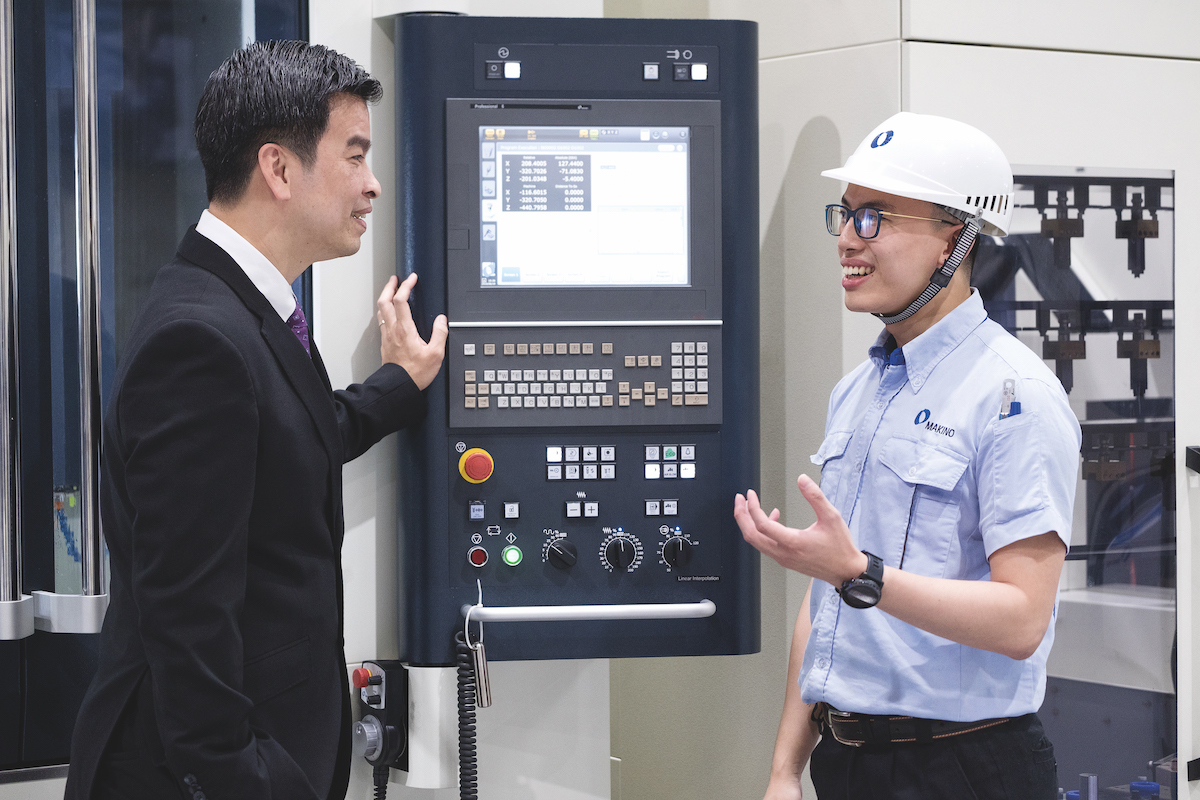
“Then I joined Makino,” Mr Neo recalls. “When I first joined, our intention was to expand our Asian market share, and I think we have done relatively well over the past few years. From the time I joined in 2012, I think our revenue in the sales territory we are responsible for has achieved nearly twofold from 2012 to last year, given the good market demands. So, I think we are doing a pretty good job in gaining market share over the years across all regions in Asia outside Japan.”
New Ideas, New Products
Makino manufactures machines for a wide spread of industries – ones that demand high precision and tight operational tolerances, including die and mould, automotive, electronics, aerospace, medical and semi-conductors. It manufactures several series of milling machines, as well as sinker electrical discharge machines, and wire electrical discharge machines in its Singapore facility in Tuas.
The company’s capabilities stretch beyond machining. Makino Asia has invested heavily in digital technology for its production processes, making it a global leader in transitioning its manufacturing plants to high-technology digital operations. The advantages are enormous – and far reaching.
The Fourth Industrial Revolution – called Industry 4.0 – has led to technology breakthroughs that are already irrevocably changing the way manufacturing plants can not only upgrade their productivity and performance but also improve product quality and precision. A key focus of the shift by Makino Asia to adopt technologies such as advanced robotics and IIoT technologies is providing higher value products.
Mr Neo steered Makino Asia through its transition to digital technology, and committed the company to building its own ‘smart factory’ in Singapore. It was launched in April 2019 by Singapore’s Senior Minister of State for Trade and Industry, Koh Poh Koon. The complete digital transformation plan is expected to take about five years, and will help the company boost its productivity, capacity and product quality without the need for more employees.
Training for the future
All of Makino Asia’s employees undergo the company’s Workforce Transformation program, which trains them in automation, digital literacy and safety. The courses are mandatory for all employees to stay up to date with the company’s digital technologies introduced to manage the automated equipment in its smart factory.
The facility’s launch is a high point in the company’s transformation, which began in 2016. Makino Asia was assisted by the Singapore Government’s Industry Transformation Map (ITM) for the precision engineering industry, which was initiated to increase the industry’s output from S$32 billion (US$23 billion) in 2014 to S$42 billion (US$30 billion) by 2020 by enabling them to invest in new technology, digitise processes and train workers to drive productivity improvements. The total government package is valued at S$4.5 billion (US$3.3 billion).
“Under the precision engineering ITM, we outlined our intent to support companies in their transformation journey through smart factory projects, and I am glad Makino has taken on the challenge,” Senior Minister of State Koh Poh Koon said in a speech at the launch ceremony. “The success of a smart factory depends not just on how much money you invest and hardware alone, but also on equipping the workforce with the right skills and mindsets.”
These smart factories are the future of manufacturing, Mr Neo says, but he has previously expressed his concern in Asian business journals that some Asian manufacturers will lose any advantages they have in the global industry if they are reluctant, or at least slow, to adopt the latest digital technologies to streamline their operations.
He noted that some multinational manufacturers in Asia have begun the process of migrating to new digital technologies in their factories, but small and medium-sized companies will find the transition more difficult. “The machine tool industry is still quite traditional and conservative, but we can’t stay that way,” Mr Neo says.
“The machine tool industry is still quite traditional and conservative, but we can’t stay that way.”
“So, to meet the increasing demand for our solutions at Makino Asia, we expanded our Singapore facilities and built our smart factory, focusing on Industry 4.0. We are among the first machine tool builders to establish such a facility in this region.”
Makino Asia is enhancing its capabilities in automation, advanced robotics, and collecting and digitising supply chain data. The company intends to continue investing heavily in research and development and to increase its existing team of 100 engineers.
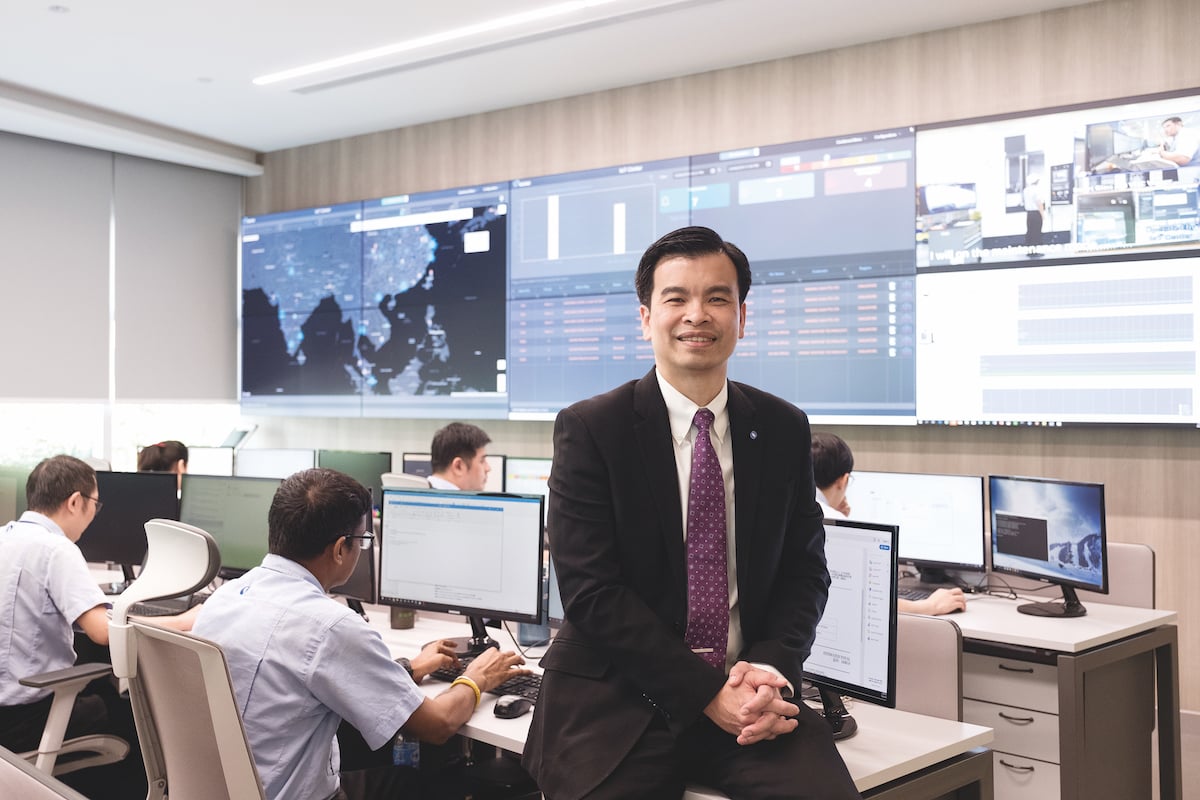
“Through the principles of the IIoT and design of the facility, we hope to meet the growing demand for high-quality products and sophisticated precision engineering capabilities in Asia. Our smart factory consists of an assembly factory and state-of-the-art machining factory, leveraging seamless automation and digital technologies to achieve high levels of productivity and connectivity between our robots, machines and other peripheral systems. For instance, we are able to monitor and track machine conditions in real time to ensure optimal machine performance. Through the solutions, we expect to almost double our machine production capacity.
“Makino is leveraging Singapore as the Group’s flagship location to build up our capabilities in Industry 4.0. An aim is to also leverage data analytics to help our customers to raise their productivity levels and reduce defect rates. Eventually, some of the concepts and solutions that are encapsulated, piloted and refined in Singapore may be adopted by other production sites as we seek to scale up, yet remain nimble and agile enough to be able to promptly respond to our customers’ needs,” says Mr Neo.
Among the improvements to the Tuas facility’s operations are guided forklifts, which automatically carry machine castings from factory to factory, automatic inventory updates for parts, and automatic disposal of loose chips. The whole facility is also energy efficient, using 5,300 solar panels for power.
“Our facility is fitted with energy-saving and efficient solutions; green energy from installed solar panels within the compound helps to generate about 2,400 megawatt hours of energy annually,” Mr Neo explains.
“This is equivalent to taking 200 cars off Singapore’s roads, avoiding 1,000 tonnes of carbon dioxide equivalent emissions over the same period. In the machining factory, a chilled ceiling system is used to ensure maximum energy efficiency of its air-conditioning system while maintaining high quality, reliability and optimum performance of our manufacturing operations.”
Makino milling at a glance
Makino Milling is the parent company of Makino Asia. It was founded in 1937 by Makino Tsunezo, when he registered the Makino Shoten Production Department. In 1942, that name changed to Makino Ken Mills, andthen changed again in 1961 to Milling Machine Co Ltd.
The company took a huge step in 1975 when it established Makino USA Inc in the USA, and then at the turn of the century, it established Makino India Private Limited in India. Now the parent company has operations in 17 countries around the world.
Makino Asia began as Leblond Asia in Singapore, manufacturing manual lathes for US markets. Makino Milling Machine Company Ltd of Japan took over Leblond Asia in the 1980s, and renamed it Makino Asia, to better service its markets in South-East Asia.
Makino Asia’s customers will certainly see the benefits of this transformation. The company’s IoT Centre will enable Makino to track its Asian customers’ machines and actually predict when they might be about to break down and arrange preventative maintenance.
But wait, there’s more. In line with this reinvention of the company’s operations, Makino has also developed a new voice-assistance technology called Athena, designed specifically for machine tool operators to ‘talk’ to the machine. Makino is the first company to offer this kind of product.
Operators of all skill levels can be trained to use it for setting up and running machines and managing tooling processes. The future of manufacturing, Mr Neo says, will depend on instant interaction between operators and their machines, and voice-assistance technology will very quickly become an integral part of that process in most workplaces.
This philosophy fits well with Makino Asia, Mr Neo says, and is in part a consequence of the company’s Japanese roots. “We learned a lot from the Japanese,” he points out. “I think they are always very good in terms of quality standards. So, we always go through a Japanese philosophy of kaizen, or continual improvement. We always encourage our people to look ‘outside the box’ and try to see small, clever things on the shop floor or in their offices. We ask them to see things that they can improve to make things even more efficient and more cost effective.”
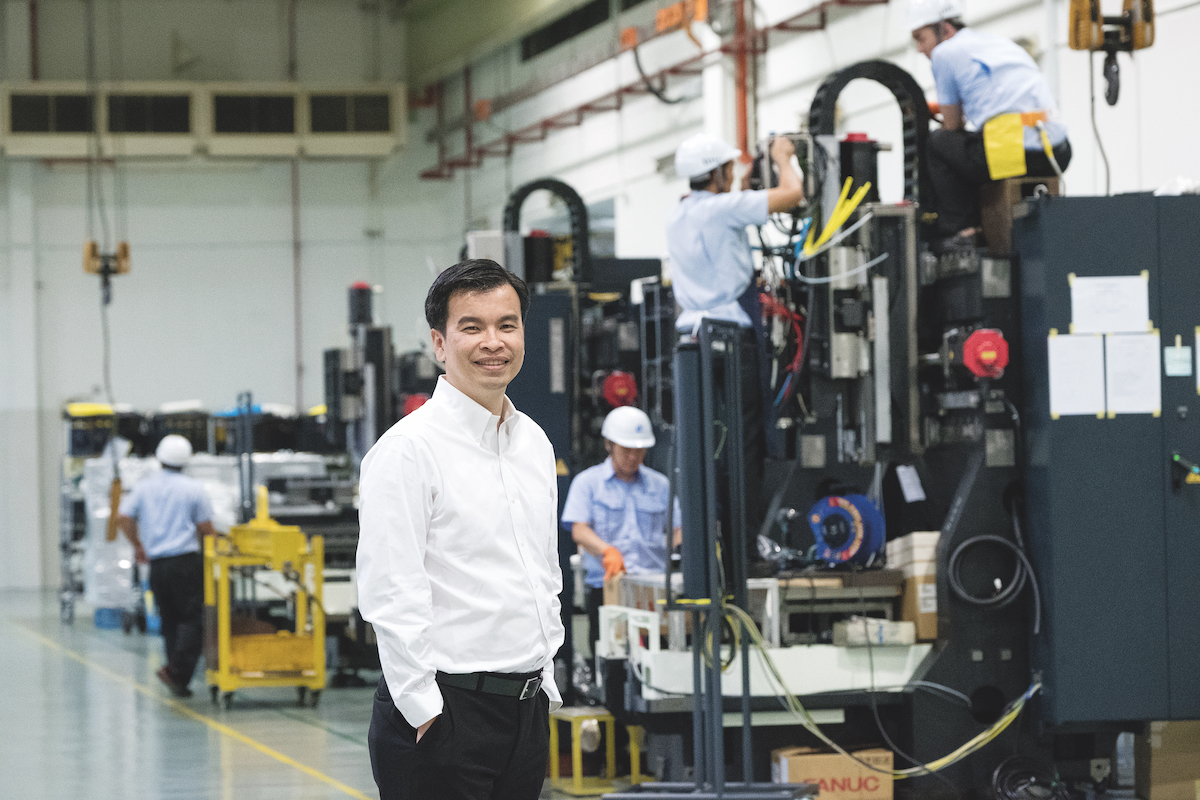
Inside a Tight Market
The drive for greater efficiency is a direct result of the current market, gyrating under the pressure of global competition, trade wars and the rapid development of Makino Asia’s immediate region.
Asia is undergoing a surge of economic maturity, and every manufacturer is keen to catch that wave. But while rising wages and other costs have driven some manufacturers out of Singapore, Mr Neo was adamant that Makino Asia is staying put, and thus made the large investments in its Singapore facilities, including the ‘smart factory’.
“I think this industry has come a long way, and one of the biggest challenges we’ve been going through is that we are operating in a very competitive market,” Mr Neo says. “We are also operating in a region with many different countries, different cultures, different languages and different backgrounds. So, we always try to leverage being the first mover, getting into the market where nobody has been before.
“As a global leader in high-speed machining, our successes in recent years have been achieved through our focus on China and India. We’ve been in India for almost 20 years, and so far, over the 20 years, we have built up a very good rapport with customers, and you can see the huge potential of this market moving forward. But everybody seems to be only talking about China. I think India is really an up-and-coming market.
Start Your Automation Journey – Five Keys to Success
- Find a Champion. Establish an internal champion with the task of investigating and implementing automation.
- Seek a Partner. Develop a relationship with an automation partner.
- Explore Opportunities. The best way to start an automation project is to identify an existing process that has significant inefficiencies.
- Select Appropriate Automation. There are several different types and levels of automated systems.
- Think Big Picture. Always think long term.
– ‘Looking To Remain Relevant In The Age Of Electric Vehicles? Automate!’ – Makino White Paper
“I think the kind of challenge that we face is trying to expand to different markets, so once we have stabilised in a certain market, we may realise that whatever we succeeded in doing in that market may not be the same way that we achieved results in another market. This is something we always want to look into. We always look to have a local manager run our operations, and to place a lot of trust and confidence in them. This is always a learning process for us. Recently, we started to look seriously into our Vietnam operations and realised that, even within the same country, the markets in Hanoi and Ho Chi Minh can be totally different,” he concedes.
In late July, Makino Asia opened its Ho Chi Minh City Technology Centre in Vietnam. The two-storey centre contains offices, a parts centre, showroom and training facility in 4,700 square metres of space in the Saigon High Tech Park. It also houses machines for high-speed milling and EDM applications, and will support employee and customer training, a suite of services for local customers, application engineering and after-sales support.
Nguyen Thanh Hoa, Country Manager of Makino Vietnam, said in a statement at the opening of the Technology Centre: “Makino’s pride is always on quality and service, to provide a holistic experience to all customers. The Makino Vietnam Technical Centre serves to demonstrate the latest machining technology and solutions from Makino, as well as from our technology partners. Customers will benefit from our one-stop solution for every size and industry.”
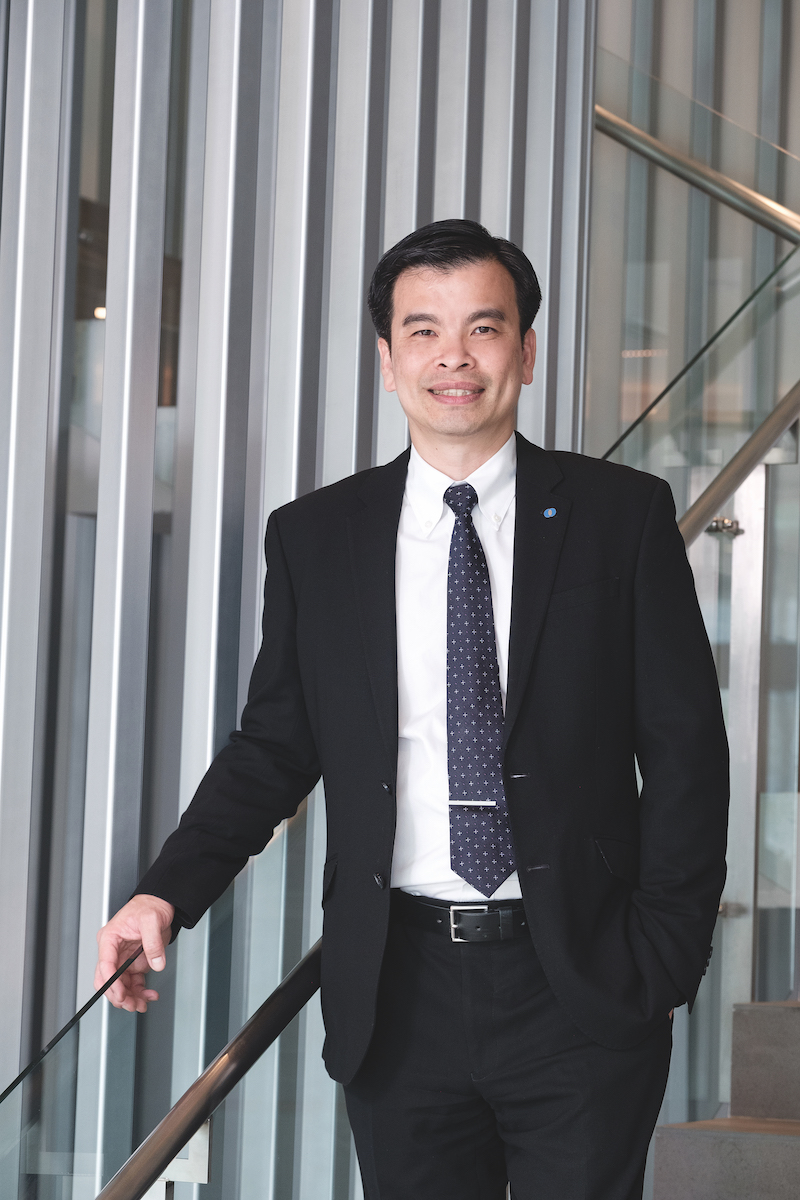
Mr Neo also pointed out at the opening: “The Makino Vietnam Technology Centre supports Makino’s strategy and our commitment to strengthen our support to customers, both before and after sales, and share our expertise in the precision engineering industry with turnkey solutions and technology knowledge transfer.”
It’s a Culture Thing
Mr Neo has definite views on the ability of a corporate culture to permeate the company’s ethos and instil in its employees a sense of involvement, of pride in their work and the products they make. “I think a corporate culture is very important for all companies, but especially ours, because I truly believe that our employees are the company’s biggest asset,” he says. “We always want to instil the kind of attitude that our employees can accept and embrace.
“Our company motto, or slogan, is ‘Quality First’. This is very important for us because we always endeavour to provide the highest quality products both in hardware and also in service to our customers,” Mr Neo explains.
“We always want to make sure that the products that leave our factory are working perfectly when they get to customers, and they are happy with the quality standard that we are aiming for. We relate to all our employees with that way of thinking.”
Makino Asia’s success has not been a fluke, Mr Neo says, but rather a result of a large team’s cumulative effort over many years. But he isn’t yet satisfied with where the company currently resides in the market. There is more to do, he says.
“In business, success is relative. I wouldn’t think we are there yet, but I think we have come a long way since Makino Asia was established about 45 years ago. I think it’s a lot of hard work, a lot of commitment, and a lot of people wanting to get things done, of people wanting to succeed. It is another aspect of kaizen, of always improving our position.”
“The best piece of advice I’ve ever received is to always keep calm, and don’t always jump to conclusions.”
Mr Neo is currently a Council Member of the Singapore Manufacturing Federation (SMF), and is a regular contributor to its seminars, functions and events. He’s rather modest about his leadership skills but boils them down to a collaborative approach in dealing with people and letting them contribute in a concrete way to all aspects of the company’s operations.
“Well, I’m still striving to be a good leader,” he says unassumingly. “I just go back to what I said before – I think the human touch is always very important. I think we should always walk the talk, to lead by example and be very committed to the targets or the mission that this company has set,” he adds.
Electric vehicle technology puts pressure on precision engineering firms
“The automotive industry is in a state of change. Most notably, the move towards electrification is finally taking shape. And, it’s time for anyone within the industry to take the trend seriously. Case in point – in the International Energy Agency’s Global EV Outlook, the number of electric cars will grow at a compounded annual growth rate of 33% to 125 million by 2030.”
– ‘Looking To Remain Relevant In The Age Of Electric Vehicles? Automate!’ – Makino White Paper
“So, I always try my best to make sure that I walk the talk, that I set an example. If you say something, then you’re going to do it. I make sure I’m the first one to do it and show it to our employees. I think that’s very important.”
The company has overcome challenges that would be a test of any CEO and emerged tougher and more resilient from them. So has Mr Neo. He deals with challenges as they occur by paying heed to advice that he received long ago from a mentor who set him on his corporate path.
“The best piece of advice I’ve ever received is to always keep calm, and don’t always jump to conclusions. Then I think you should always stay composed, and make sure you know that what you’re telling people is really what you need to tell them, after thinking it through very carefully,” he offers.
“You don’t always have to be the first one to speak up. You can always listen to what others have to tell you.”
But then he adds a qualification to this advice. “You don’t always have to be the first one to speak up. You can always listen to what others have to tell you.” Mr Neo’s favourite aspects of his job are actually the challenges that arise each day and finding a way through them.
“Oh wow – my favourite thing? Well, I think my favourite part of the job is it’s always very challenging. Every day is a challenge; every day you get different kinds of problems or different issues popping up. It can be within the factory, it can be in the region, or other parts of our reach. So that will always keep me going. I think that is actually the real test of my drive, always pushing me ahead,” he responds.
The end result of his philosophy, he says, is a company and working team that fulfils the wishes of customers. “Eventually what we all want is to see a happy customer, giving them a product that is of the highest quality. When you see a customer’s smiling face saying a big thank you – I think that is what really drives me.”
Proudly supported by:
